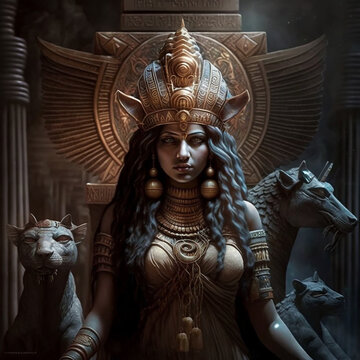The beginning of the Babylonian civilization and its most important kings and achievements
The history of ancient Babylonia dates back to the 3rd millennium BCE when the first city of Babylon emerged and eventually became a major urban center in the region known as Mesopotamia, which is present-day Iraq. This city evolved and transformed into the Babylonian Empire, encompassing a collection of cities and surrounding areas.
The Babylonian civilization is characterized by significant advancements in various fields, including science, arts, engineering, agriculture, and literature. It is renowned for its development of the ancient Babylonian writing system known as cuneiform, which contributed to the documentation of cultural, commercial, political, and religious information of the Babylonian civilization.
Among the notable kings in the history of the Babylonian civilization is King Hammurabi, who ruled in the 18th century BCE. Hammurabi is regarded as one of the prominent Babylonian kings and one of the greatest rulers in the ancient Near East. He is famously known for issuing the "Code of Hammurabi," a comprehensive set of written laws that covered all aspects of daily life in the Babylonian kingdom.
The Babylonian civilization was influenced by the diversity of neighboring cultures and kingdoms, including the Sumerians, Akkadians, and Assyrians. Several royal dynasties took turns ruling over the Babylonian Empire, and among the notable kings were Hammurabi, Nabopolassar, Nebuchadnezzar II, and Nabonidus.
Many achievements were realized during the reign of the Babylonians, with one of the notable ones being the construction of remarkable religious structures, including the Ziggurat of Babylon and their grand temples. The Babylonian civilization also excelled in architecture and civil engineering, with the development of advanced irrigation systems and the implementation of sophisticated sewage systems.
Wars and conflicts were also part of the history of the Babylonian civilization, as the empire witnessed various conflicts with neighboring kingdoms, including the Assyrians, Elamites, and Hittites. The Babylonian civilization endured until the fall of Babylon to the Persians in the 6th century BCE, marking the end of the Babylonian Empire.
The Babylonian civilization left a rich cultural legacy, influencing many subsequent cultures and civilizations in their techniques, arts, and myths. It is considered one of the pillars of human history, and studying its history and achievements contributes to our understanding of the development of civilizations and their impact on human progress throughout the ages.




Comments
Post a Comment